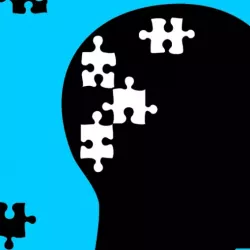Health Guide (Page 4)
Can Diet Impact Lower Back Pain? Foods To Eat and Foods To Avoid
Lifestyle factors play a crucial role in health and well-being. Dietary habits are a good example. What you eat not only affects digestion, energy level, and mood but can also make an important difference in managing and preventing various types of pain, including lower back pain. Many people are unaware of or disregard this fact, and as a result, may suffer chronic lower back pain due to... ❯❯❯
The Impact of Continuing Medical Education on Clinical Excellence in Emergency Medicine
In the fast-paced and ever-evolving field of emergency medicine, staying abreast of the latest advancements and best practices is crucial for maintaining clinical excellence. Continuing Medical Education (CME) plays a vital role in ensuring that emergency physicians remain knowledgeable, skilled, and capable of delivering the highest standard of care. This article explores the importance of CME... ❯❯❯
The Advantages of a Hospital Management System
Managing a hospital requires precise management because it involves many intricate decisions and procedures. It can be very difficult to guarantee accuracy and efficiency at every level if a weak system is in place. A Hospital Management System (HMS) is useful in this situation. So, what is a hospital management system? It's difficult to envision a cutting-edge hospital functioning efficiently... ❯❯❯
Healthcare Outsourcing Philippines: Powering the World's Leading Telehealth Providers with Front and Back-Office Support Services
 As the global healthcare landscape evolves, the demand for telehealth services has surged dramatically. Telehealth offers a convenient and efficient way for patients to access medical care remotely, bridging gaps in accessibility and providing timely healthcare solutions. The Philippines, renowned for its robust business process outsourcing (BPO) industry, plays a crucial role in powering some of... ❯❯❯
As the global healthcare landscape evolves, the demand for telehealth services has surged dramatically. Telehealth offers a convenient and efficient way for patients to access medical care remotely, bridging gaps in accessibility and providing timely healthcare solutions. The Philippines, renowned for its robust business process outsourcing (BPO) industry, plays a crucial role in powering some of... ❯❯❯
What Is the Average Settlement for Slip and Fall?
Slip and fall accidents are a common occurrence that can lead to significant physical and financial consequences. Understanding the potential settlements for these incidents is crucial for anyone who has experienced such an accident. This article aims to provide a comprehensive overview of what one can expect in terms of settlement amounts and the factors that influence these figures. Understandi... ❯❯❯
The Comprehensive Beginners Guide to Prioritizing Your Mental Health
 In today's fast-paced world, most people focus on their physical health while neglecting their mental well-being. This guide provides a comprehensive overview of mental health, including practical tips to help you prioritize your mental well-being. Let's explore what mental health means and how you can take care of it.
Understanding Mental Health
Maintaining good mental health involves more... ❯❯❯
In today's fast-paced world, most people focus on their physical health while neglecting their mental well-being. This guide provides a comprehensive overview of mental health, including practical tips to help you prioritize your mental well-being. Let's explore what mental health means and how you can take care of it.
Understanding Mental Health
Maintaining good mental health involves more... ❯❯❯
Health Tech Product Manager Jobs: Exploring the Opportunities
 The healthcare industry is undergoing a digital transformation, and the demand for professionals who can bridge the gap between technology and healthcare is on the rise. Health tech product managers play a crucial role in this evolving landscape, driving innovation and shaping the future of healthcare delivery. In this article, we'll delve into the exciting world of health tech product manager... ❯❯❯
The healthcare industry is undergoing a digital transformation, and the demand for professionals who can bridge the gap between technology and healthcare is on the rise. Health tech product managers play a crucial role in this evolving landscape, driving innovation and shaping the future of healthcare delivery. In this article, we'll delve into the exciting world of health tech product manager... ❯❯❯
IV Hydration Therapy: A Comprehensive Guide to Its Benefits and Uses
IV hydration therapy is growing in popularity as a quick and efficient way to deliver fluids, vitamins, and nutrients directly into your bloodstream. This method bypasses the digestive system, which allows for faster and more effective absorption. In this blog post, we'll explore what IV hydration therapy is, its benefits, and how it is used. What is IV Hydration Therapy? IV hydration therapy... ❯❯❯
10 Effective Strategies For Managing ADHD In The Workplace
Managing Attention-Deficit Hyperactivity Disorder (ADHD) in the workplace can be challenging, but with the right strategies, individuals can improve their focus, productivity and overall job satisfaction. ADHD can manifest as difficulty in maintaining attention, hyperactivity and impulsiveness, which can hinder performance at work. However, adopting effective techniques and tools can help... ❯❯❯
Understanding the Role of a General Practitioner in Sacramento
In the bustling city of Sacramento, having access to quality healthcare is paramount. Amidst the array of medical services available, the role of a general practitioner stands out as the cornerstone of primary care. At Sequoia MD, we redefine the conventional healthcare experience through our personalized approach, catering to the diverse needs of Sacramento residents. Why Choose Sequoia MD for... ❯❯❯







